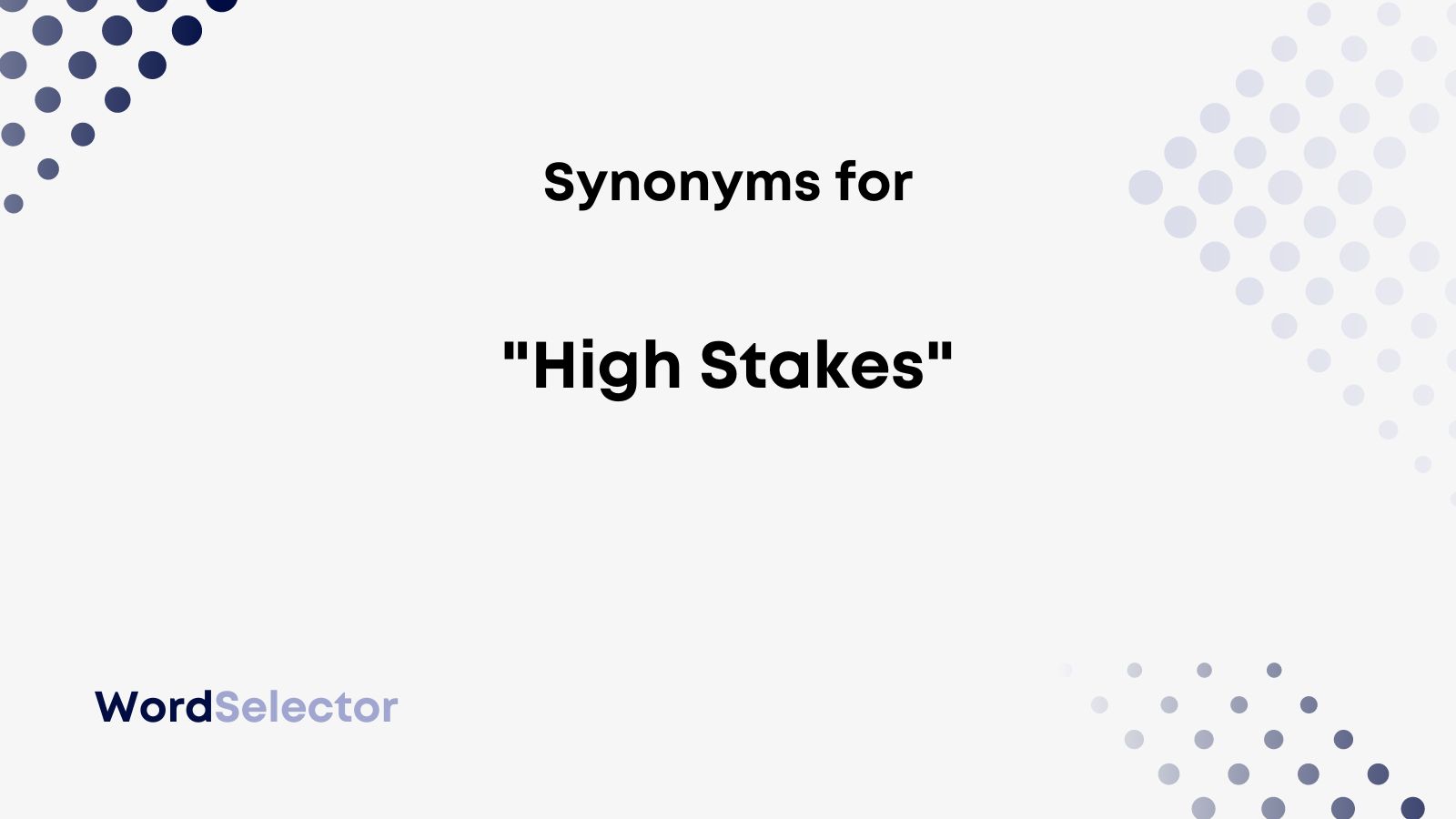If you’re wondering how to say “high stakes” formally or just in different words, we have just the article for you!
Below, we’ve compiled a list of great alternative phrases for “high stakes” that you can use at home or in the office.
So, stick around to learn more!
High Stakes Synonyms
- Critical
- Make or break
- Impertinent
- Important
- Risky
- Desperate
- All-or-nothing
- Zero-sum
- Life-and-death
- Leap of faith
- All in
- Now-or-never
- Uncompromising
- Hard-line
- Do-or-die
KEY TAKEAWAYS
- “High stakes” is a correct phrase that you can use in informal circumstances.
- A more formal alternative that you can use at work is “critical.”
- In a less formal setting, you can try the alternative, “make or break.”
Don’t go anywhere! We still need to discuss our top two synonyms for “high stakes” in more detail and show you some useful examples.
After that, we’ll discuss the correctness of the original phrase and whether it should be hyphenated.
Critical (Formal)
Another word for “high stakes” that you can use in professional circumstances is “critical.”
When something is “critical,” this means that is of great importance.
Usually, we use it to suggest that the presence or absence of something will impact the success of our plans.
“Critical” is a better term than “high stakes” for a work email. After all, it has a more formal tone, whereas the original phrase is a bit more casual.
Therefore, you can use this phrase to stress the importance of your instructions when you are speaking to a colleague or an employee at the office.
Let’s see this professional way to say “high stakes” in an email sample:
Dear Samya,
We have reached a critical stage in our company’s transition and will need to recruit at least three new staff members within the quarter.
Sincerely,
Joshua
You can also use this phrase when you are issuing instructions in person, like so:
It’s critical that you get all of the guests in their seats before the speeches start.
Make or Break (Informal)
“Make or break” is another way to say “high stakes” when you are discussing an important situation in a less formal setting.
For example, you can use this phrase when discussing a work matter with your colleagues, especially if you have a generally friendly and casual rapport.
However, we wouldn’t recommend using this phrase when speaking to your employer or a client. A more formal synonym from our list would be better suited.
“Make or break” is not a better phrase than “high stakes.” However, it will make the situation sound slightly more serious.
After all, “make or break” essentially means that a certain action or occurrence will vitally impact one’s success or failure.
Have a look at how we’ve used this phrase in an email example:
Dear Lewis,
Please get that report back to me as soon as possible.
Your findings will make or break our relationship with this supplier.
Regards,
Miriam
You can also use this phrase as an adjective. In this situation, it is better to hyphenate it, like we’ve done in the example below:
I’ll admit, this is a bit of a make-or-break situation.
Is It Correct to Say “High Stakes”?
The phrase “high stakes” is perfectly correct.
This expression essentially means that a situation is very risky and will result in either hefty rewards or a heavy loss.
It’s derived directly from the gambling term used frequently in poker or other games in which money is bet between players.
Therefore, we wouldn’t recommend using this expression in highly formal circumstances, as it’s quite idiomatic.
However, you can use it at work when you are discussing a risky business decision with your colleagues, as they are likely to understand what you mean.
In short, if you are in a more casualsetting and want to use the original phrase instead of one of our alternatives, that’s perfectly appropriate.
To help you out, let’s have a look at how you can use “high stakes” in a sentence:
Let their representatives know that we are prepared to face high stakes.
If you’re unsure whether “high stakes” should be hyphenated, we’ll discuss that next!
Essentially, both “high stakes” and “high-stakes” are correct. Thus, choosing which one to use depends entirely on context.
In the sentence above, we used “high stakes” as an independent clause. Therefore, we didn’t need to hyphenate it.
However, if you use “high-stakes” as an adjective, you will need to include a hyphen like so:
- This is a high-stakes situation.
If you found our list of synonyms helpful and want to keep them around for later, feel free to bookmark this page!

